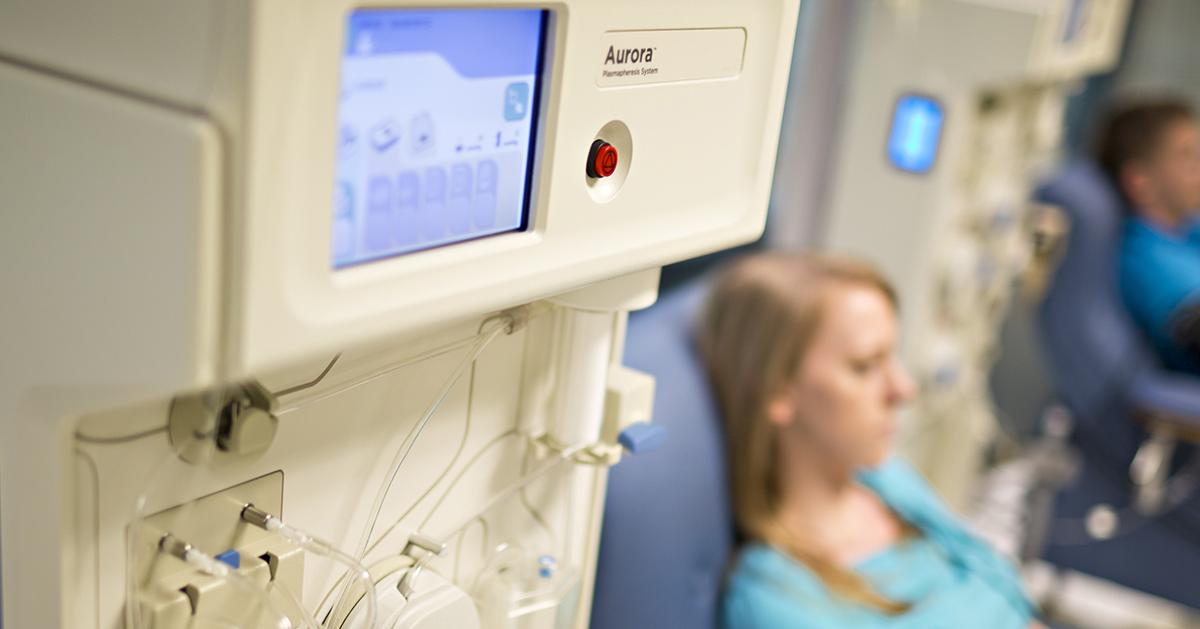Treatment Options For Goodpasture Syndrome
Supplemental Oxygen
Depending on the damage to the lungs, some patients may require supplemental oxygen to keep a healthy amount of oxygen flowing through their bodies. After the initial symptoms of fatigue set in, Goodpasture syndrome can rapidly cause more damage to the lungs and kidneys. Patients with lung complications will experience shortness of breath at first, though this quickly evolves into a cough, and some patients find themselves coughing blood. Goodpasture syndrome has the potential to cause life-threatening bleeding in a patient's lungs. Not only is internal bleeding dangerous, but the blood restricts an individual's ability to breathe. In most cases, Goodpasture syndrome doesn't cause long-term lung damage. But while the lungs are injured, patients may need to wear an oxygen mask or cannula for the sake of their health.
Uncover more options for effectively treating Goodpasture syndrome now.
Plasmapheresis

Plasmapheresis is another one of the most common treatments for Goodpasture syndrome. Medical professionals will often pair this treatment with oral medications. Rather than addressing direct symptoms in the lungs and kidneys, plasmapheresis attempts to help the underlying cause of Goodpasture syndrome. Though we don't yet know how to make the immune system stop producing the harmful antibodies entirely, this treatment removes the existing harmful antibodies from the patient's blood. The procedure involves drawing the patient's blood into a centrifuge, which separates the plasma from the red and white blood cells. The plasma is the component of the blood that houses the harmful antibodies. Once the plasma has been removed from the red and white cells, the healthy portions of the blood are mixed with donated plasma. This new, antibody-free blood then runs back into the body.
Get more information on how to treat Goodpasture syndrome now.
